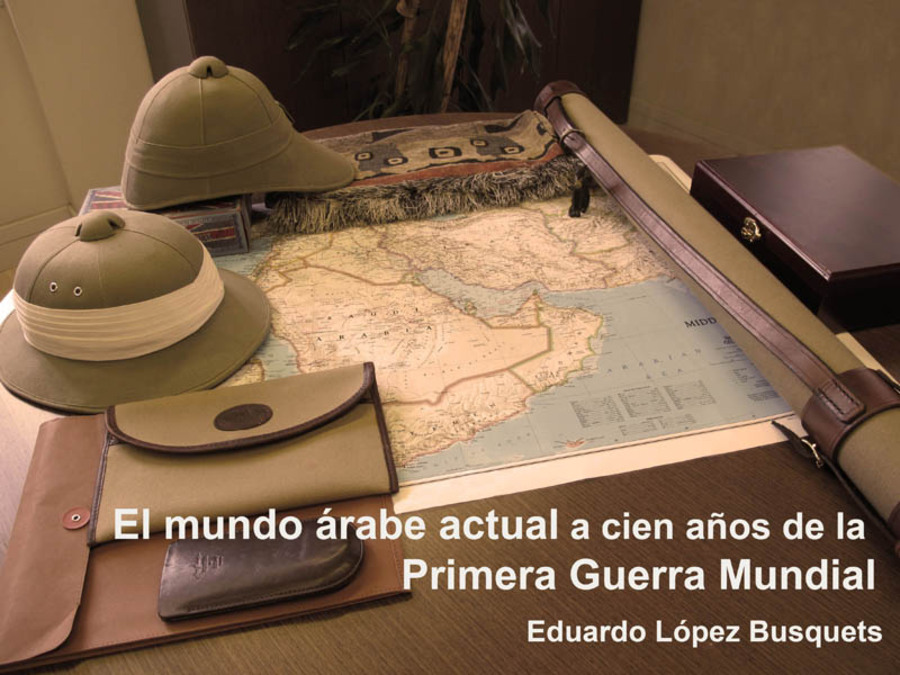Conferences and debates
Index / Activities / Conferences and debates / Conference on the Arab world after World War I in Santiago and Malaga
Conference on the Arab world after World War I in Santiago and Malaga
From March 10, 2015 until March 13, 2015
SANTIAGO / MALAGA
See further information
The General Director of Casa Árabe, Eduardo López Busquets, explains the Arab dimension of this conflict and its repercussions today
On the occasion of the commemoration of the World War I centennial, Casa Árabe has organized a conference titled “The Arab World One Hundreds Years After World War I.” It will provide an overview of how the Middle East region was involved in the war.
In Santiago de Compostela, the event will be taking place on Tuesday, March 10 at 8:00 p.m. in the Salón Olivo of the Hotel Eurostars Araguaney (at Calle Alfredo Brañas, 5).
In Malaga, the conference will be held on Friday, March 13 at 7:30 p.m. in the Spanish-Moroccan Studies Center (location: Muro de San Julián, 33- Plaza del Teatro).
In his presentation, López Busquets will comment on a series of events whose importance has not been sufficiently studied. On the one hand, there was the Turkish-Italian War of 1911, which took place in modern-day Libya, considered the precursor leading up to the outbreak of World War I. On the other hand, there was the Sykes-Picot Agreement of 1916, which led to the definitive dismemberment of the Ottoman Empire. This would not have been possible without the prior Arab revolt encouraged by the British archeologist who became a soldier, Lawrence of Arabia. This agreement, along with the later Balfour Declaration of 1917, would do away with the aspirations of creating an Arab state.
The contemporary history of many Arab states is the legacy of a geopolitical map resulting from that dispute. The civil war in Syria cannot be properly understood without knowing about the events which preceded World War I. As for Saudi Arabia and the Gulf States, neither would exist as they do today if they had not formed part of Britain’s colonial policy after the war. Turkey’s role in the region is also marked by the breakup of the Ottoman Empire, which took place when the war came to an end.
In Santiago de Compostela, the event will be taking place on Tuesday, March 10 at 8:00 p.m. in the Salón Olivo of the Hotel Eurostars Araguaney (at Calle Alfredo Brañas, 5).
In Malaga, the conference will be held on Friday, March 13 at 7:30 p.m. in the Spanish-Moroccan Studies Center (location: Muro de San Julián, 33- Plaza del Teatro).
In his presentation, López Busquets will comment on a series of events whose importance has not been sufficiently studied. On the one hand, there was the Turkish-Italian War of 1911, which took place in modern-day Libya, considered the precursor leading up to the outbreak of World War I. On the other hand, there was the Sykes-Picot Agreement of 1916, which led to the definitive dismemberment of the Ottoman Empire. This would not have been possible without the prior Arab revolt encouraged by the British archeologist who became a soldier, Lawrence of Arabia. This agreement, along with the later Balfour Declaration of 1917, would do away with the aspirations of creating an Arab state.
The contemporary history of many Arab states is the legacy of a geopolitical map resulting from that dispute. The civil war in Syria cannot be properly understood without knowing about the events which preceded World War I. As for Saudi Arabia and the Gulf States, neither would exist as they do today if they had not formed part of Britain’s colonial policy after the war. Turkey’s role in the region is also marked by the breakup of the Ottoman Empire, which took place when the war came to an end.

